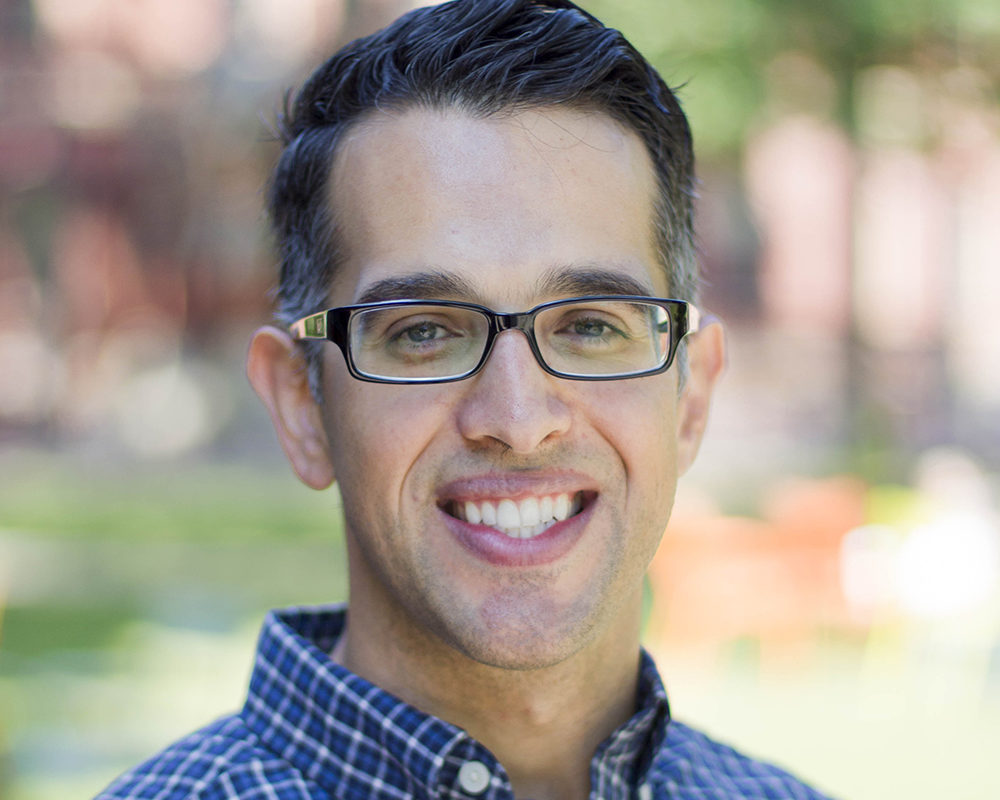
USC Stem Cell scientist Albert Almada once had ambitions of becoming a catcher in a professional baseball league—until he was sidelined by a rotator cuff injury in his shoulder.
“Life painfully closes one door and then cracks open another, and then over time, you start to realize that that is how things should have happened all along,” said Almada, who recently joined USC as an assistant professor of orthopaedic surgery, and stem cell biology and regenerative medicine. “I used to see all kinds of orthopaedic doctors when I was getting treated back in high school to figure out what was wrong with my arm. And now I am teaming up with orthopaedic surgeons to use stem cells to help athletes, like I use to be, to recover faster and function better in their sports.”
After graduating from Servite High School in Anaheim and enrolling as an undergraduate at the University of California, Irvine, Almada refocused his career ambitions on the medical field. His original intention was to pursue an MD as a way to help patients like his older brother, who has Duchenne muscular dystrophy.
Intending to strengthen his medical school application, he joined a research lab, began studying bioinformatics and protein interactions, and quickly realized that he had found his true calling.
He began spending his summers participating in research programs, first at Cold Spring Harbor and then at the Massachusetts Institute of Technology (MIT).
He enjoyed his research experiences so much that he decided to become an MIT PhD student in the laboratory of Nobel Laureate Phillip Sharp, studying the regulation of genes in stem cells.
Almada then moved a few miles down the road for his postdoctoral training at Harvard University in Amy Wagers’ laboratory.
“I came to Amy’s lab because of my interest in understanding how stem cells activate and rebuild skeletal muscle after injury,” he said.
As a postdoctoral trainee, Almada identified what he calls “pro-regenerative” genes that guide stem cells to effectively repair tissues and organs after damage. One of these pro-regenerative genes is named FOS, which gets turned on within 90 minutes of a muscle injury and kicks off the healing process. FOS activates dozens of other genes, including ART1, which plays a key role in awakening stem cells from their usual dormant state so that they can proliferate and repair the injured muscle. Almada recently published these findings in the journal Cell Reports.
In his new laboratory at USC, Almada looks forward to building on his recent discoveries. To increase the levels of these “pro-regenerative” genes and molecules that can potentially enhance muscle repair, his lab plans to explore approaches ranging from gene therapy to therapeutic drugs to high-intensity exercise regimens.
“Being in the orthopaedic surgery and the stem cell departments uniquely places me in a position to take my basic science research from the lab into the clinic,” said Almada. “We are focused on trying to find a new class of molecules, metabolites and genes that may be used in the clinic by our surgeons to speed up the healing process in athletes, but also to enhance muscle regeneration in wounded soldiers, the elderly, and in people like my brother, who suffer from incurable muscle degenerative diseases.”
